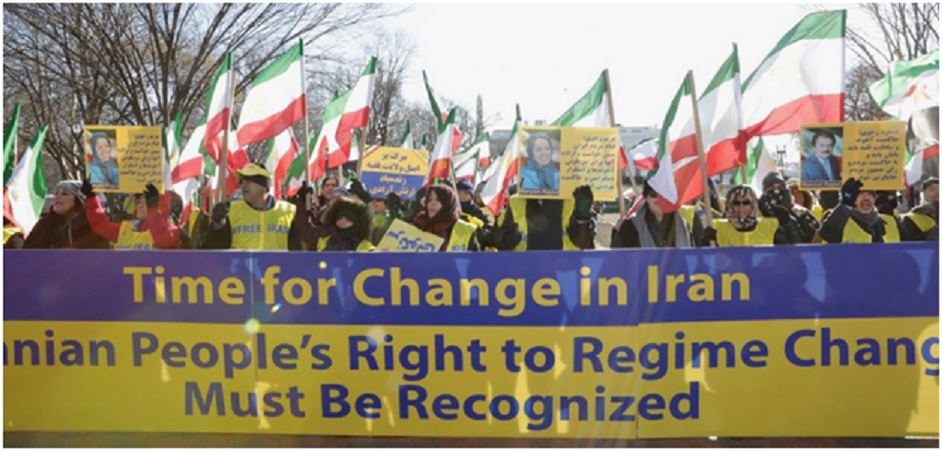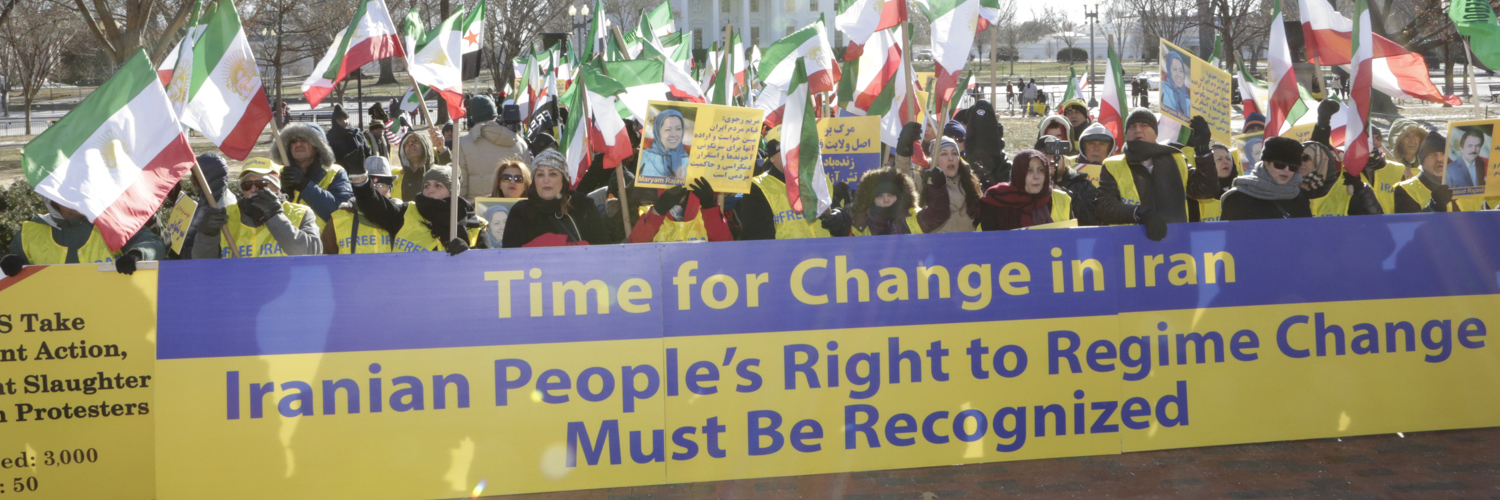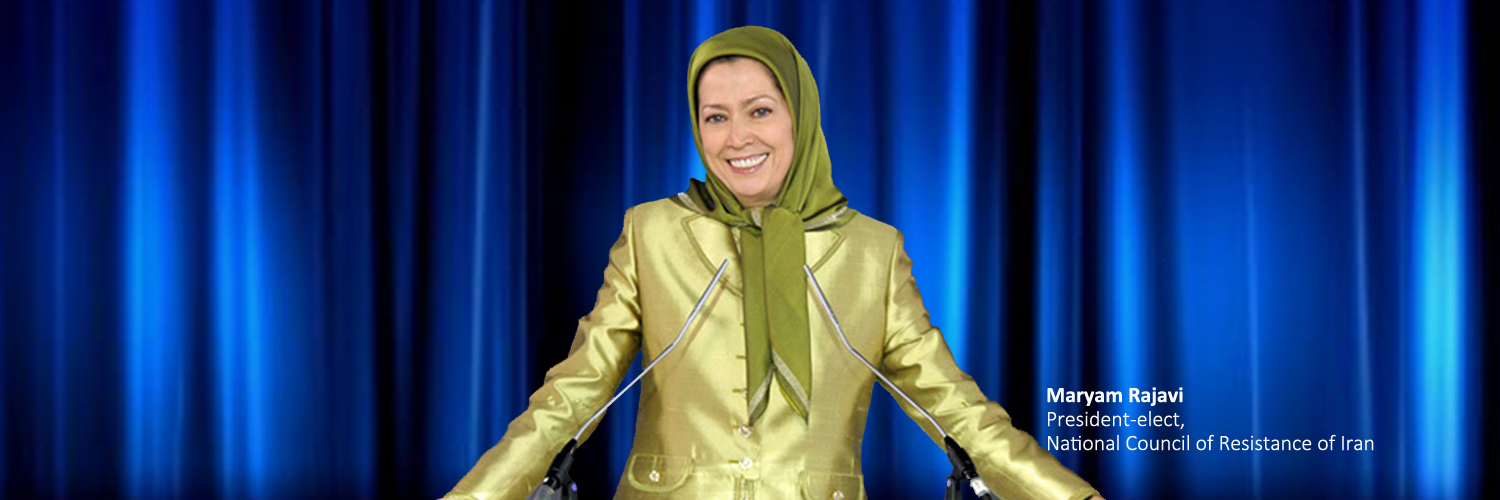Townhall | Bruce McColm | Dec 27, 2018
In the days and months following massive protests across Iran that erupted in December 2017, the regime’s vulnerability became clear. The anniversary of that nationwide uprising is approaching, and one year later, the anti-regime uprising has grown, in visibility and viability, coalescing into a unified movement that now includes virtually all sectors of Iranian society. The days of the ruling theocracy are numbered. The people of Iran are demanding regime change.
The thousands who took to the streets in over 140 cities across Iran a year ago have evolved into a sustainable, anti-government movement designed to bring down the regime. Truck drivers, factory workers, farmers, teachers, and many others previously fearful of vocalizing their opposition, are now front and center.
Driven by disastrous economic policies, skyrocketing inflation, unemployment, political corruption, and the omnipresent repression, their political demands strike to the heart of the matter. The regime has no structure or plan to alleviate these gnawing maladies; only to repress dissent. The attempts to terrorize dissidents with mass arrests and killings, then to contain the protests by shutting down internet access to social media platforms like Instagram and Telegram, which spread word of protest actions, have failed. Supreme Leader Khamenei has no will to fix the problems, and no way to contain the unrest. Contrary to the views of some in the West, his regime is a fragile, failing state.
One familiar premise over the past four decades of theocratic rule has been for the authoritarian government, whenever threatened, to point a finger at dissidents and legitimate protesters and label them terrorists. In particular, top officials of the clerical regime, from Khamenei on down, berate the leading opposition, the People’s Mojahedin of Iran (PMOI/MEK) for its organizational and leadership capabilities. In an effort to contain the mounting protests in Iran, Tehran’s president, Hassan Rouhani, phoned his French counterpart, Emmanuel Macron, to demand action against MEK “terrorists” in France whom he accused of fomenting ongoing strife. Macron declined.
Simultaneous with its attempts to terrorize the resistance units that protesters have organized within the country, the regime in Tehran is sponsoring terrorist activity abroad. With the full knowledge and support of the Supreme Leader, the regime’s president, and the collaboration of the Foreign Ministry, Tehran’s Ministry of Intelligence and Security (MOIS) uses diplomatic facilities as cover in targeting MEK activists in the West.
This year four terror plots were uncovered, including the bombing of an opposition rally outside Paris where tens of thousands were in attendance, American officials among them. An Iranian diplomat at the embassy in Vienna was arrested in Germany, charged with personal involvement in the foiled plot, and extradited to Belgium to face trial.
The regime has also attempted espionage within the U.S. that targets Americans linked to the parliament-in-exile, the National Council of Resistance of Iran (NCRI), and MEK. In August of this year, two men identified as agents of Iran were arrested and charged with spying for Tehran.
These foiled terror attacks abroad only focus the spotlight on Tehran’s own brand of terrorism at home. In small and large demonstrations throughout Iran, ordinary citizens are taking to the streets to demand change. The alternative to the Iranian regime is democracy, and the opposition National Council of Resistance coalition is the way forward toward a democratic Iran. Together with the People’s Mojahedin, its pivotal force, they form an organized movement inside Iran that also enjoys strong international support.
The NCRI already possesses the key characteristics necessary to form an alternative to the current government in Iran. Led by its President-elect, Maryam Rajavi, the NCRI has declared a 10-point Plan delineating its platform for future Iran. Iranians want a republic, not an Islamic republic led by the mullahs. With 37 years of experience and dedication, the NCRI has proven itself as the genuine alternative that can achieve democracy and create a free, modern society.
Iran’s people have reached the end of their rope, and will no longer tolerate a regime built on suppression, financial malfeasance, and terror. The anti-regime movement, guided by the MEK in Iran and represented by the NCRI abroad, is solidifying its strategies and gaining ground daily. The message resonating from Iran is that the regime, desperate and terrified of the mounting opposition, cannot forestall its inevitable overthrow.
This is the time for the U.S. Congress and administration to hold the Ayatollah and his regime responsible for their terrorist acts and human rights abuses, and to endorse the Iranian people’s efforts to achieve democracy and freedom.



